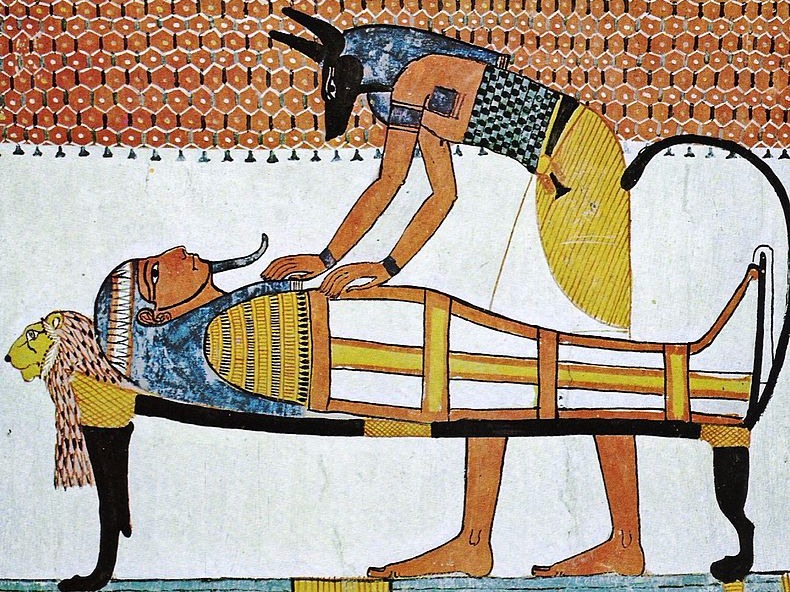“In this world nothing can be said to be certain, except death and taxes,” Benjamin Franklin once wrote in a letter.
Unfortunately, those words are just as true today as they were in the 1700s.
Worse, sometimes the two come as a package deal.
After all, when someone dies, their family members must go through a lengthy series of tax, financial, and legal steps in order to sort out the affairs of the deceased.
With the help of Levenfeld Pearlstein trusts and estates associate Adam Garber, Business Insider put together a guide to many of the hurdles that surviving relatives will certainly face. Take a look below.
And just so we're being clear, this article is not a comprehensive list of what to do after someone's death. Contact your legal, financial, and tax adviser or advisers for advice catered to your specific situation. Also, some legal language was simplified for clarity.
It will be necessary to determine whether or not there is a will.

If there's a will,the executor will be named in the will. In lay-person English, their job is to administer the process by which assets are transferred, including paying the deceased's debts, filing their income-tax returns, and distributing any remaining assets according to the terms of the will.
If there's no will, the remaining assets pass to the decedent's heirs according to the state of law. The executor is appointed by the court.
Although Hollywood has glamorized the role of the executor of the will, one is not always needed.

Sometimes, an executor may not even be needed. The most obvious reason being if an asset is owned jointly with the right of survivorship. For example, if a couple's bank account was jointly owned, then when one spouse dies the second gets the account.
Furthermore, if there is a beneficiary designation, such as life insurance or an RIA, then in order to receive these assets the beneficiary needs to file a claim form.
Still, there are other reasons, such as if the deceased held all of their assets in a revocable living trust, or if the deceased's individual assets do not exceed a certain threshold - which depends on the state.
The executor or closest family member will need many copies of the death certificate.

It's important to get multiple copies of the death certificate. They will be necessary when notifying financial institutions, government agencies, insurance agencies, and others about the death.
Death certificates can be obtained atthefuneral home. It's a good idea to obtain at least 10.
Source: Carolyn L. Bird, North Carolina State University
The deceased's debts will (usually) not be passed on to family members.

The deceased's estate is liable for debts, but the deceased's family is usually not.
The exception to this is when debts are in joint names/cosigned, in which case the survivor party will be responsible for the debt.
Notably, although the family is not legally responsible for the debts, they could still feel the effects. Any money or assets must be used to pay off the deceased's debts before anything is given out to the surviving parties.
Sources: CNN Money, Money Saving Expert
Someone will need to contact Social Security and other government agencies, alerting them of the death.

"This step is typically completed by the executor of the decedent's estate. The executor should contact the Social Security administration to let it know to discontinue Social Security payments," Garber told Business Insider. "If the Social Security Administration is not notified, the decedent's estate will owe the money back."
Additionally, "if the decedent was a veteran, the executor should contact the VA, as there may be a death benefit payable as a result of the decedent's death."
After that, every other group and company that the deceased was associated with will need to be contacted.

An executor will need to get in touch with banks, savings providers, mortgage providers, credit-card companies, and insurance companies to notify them of the death.
Additionally, they will need to get in touch with the "everyday things" that may not immediately come to mind, including utility companies; internet, phone, and TV companies; and even the deceased's employer.
Source: Consumer Reports
Federal student loans will be discharged after death, but private ones will not.

According to the US Department of Education, if a student-loan borrower dies, then that person's federal student loans will be discharged.
Additionally, if a parent plus a loan borrower dies, then the loan may be discharged if the parent dies, or if the student on whose behalf the parent obtained the loan dies.
However, this does not apply to private student loans.
Source: US Department of Education
The executor will have to file a final income tax return, and possibly an estate tax.

"The executor will also have to file a final income-tax return for the decedent. On the income-tax return, the executor will indicate the decedent is deceased,"Garber told Business Insider.
"Also, if a decedent's gross estate exceeds $5,430,000, the executor will have to file an estate-tax return within nine months of death," he added. "If an estate tax is due and a return is not filed, there are penalties for failure to file and file to pay and interest is assessed on any amountsdue. If the executor distributes the assets without filing the return, the government may have recourse against the executor."
If an heir wishes to live in a home with mortgage debt, then they are responsible for making the payments. Otherwise, they can try and sell the house to pay off the existing loan.

If a person who inherits a house with mortgage debt wishes to live in it, then they will be responsible for making the mortgage payments.
Alternatively, the person can choose sell the home in order to attempt to pay off the existing loan. But if the mortgage is worth more than the property, then the executor can try and get the bank to agree to a short sale or tell the bank to foreclose.
"That being said, if there is a personal guarantee, the bank will have a claim against the decedent's estate to the extent that there is a short fall and the decedent's other assets will be used to pay that claim," according to Garber.
If the deceased rented, the lease agreement does not automatically terminate upon death.

The most important thing to note here is that a lease agreement does not automatically terminate upon the death of a tenant.
Month-to-month renting: "Generally, the official written notice of the tenant's death acts as a 30-day notice and signals the end of the lease. The estate is responsible for paying all rent owed to the landlord for 30 days after the written notice is delivered," according to Rent Prep.
Long-termrenting: Technically, the deceased's estate is responsible for the rental payments until the lease's expiration. But the lease can sometimes be broken, and the executor will continue to pay the rent until new tenants move in.
Source: Rent Prep
Auto loans fall under the 'estate planning' category — meaning that the executor will handle them.

The executor will be in charge of paying of the deceased's debts - including car loans - from the proceeds of the estate.
But if the estate does not have enough money to pay off the debts - and provided the deceased was the only one who borrowed the loan - then "the lender generally repossesses the vehicle and writes off the car loan as an uncollectible loss," according to Internet Autoguide.
Source: Internet Autoguide
Someone will need to contact the local post office to stop or forward the incoming mail.

Sometimes it's easy to forget the small, day-to-day things, but it is important that someone contacts the local post office to stop or forward any incoming mail.
Additionally, it would be a good idea to cancel any magazine subscriptions that the deceased may have had.
Source: Consumer Reports
Creditors will have a claim against the deceased's estate.

"When a person dies, that person's creditors have a claim against his or her estate. The executor pays all of the decedent's debts with his or her assets," Garber told Business Insider. "If the decedent's assets are insufficient to pay his or her debts, then those debts die with the decedent so long as somebody is not jointly liable on them."
"In the case where a decedent's debts exceed his or her assets, state law sets forth an order of priority in paying off a decedent's debts," he added.
The executor of the deceased's estate can reclaim any debts owed.

"A debt owed is an asset of the decedent's estate. The executor of the decedent's estate is in charge of collecting the debt. It is important to make sure that debt is papered so that the executor will have a way to learn about the debt," Garber told Business Insider.
BONUS: There's also the question of what to do with emails and other online accounts.

In some cases, a person agrees that no one else will be entitled to their online account - in which case the company will delete the account and its contents after death.
But different companies have different rules. We've outlined a few:
Gmail account:
The deceased decides what to do with the account prior to death. A relevant party can submit a request regarding the deceased's account in order to close it, obtain data, resolve a potential hijacking, or simply notify Google that the user has died.
iCloud account:
- When you sign up to iCloud, you agree that your account is "non-transferable" and that any rights to your Apple ID/content in the account terminate after death. The account may be terminated and all the content within it deleted upon the receipt of a copy of the death certificate.
Facebook/Instagram account:
The account can be "memorialized." It will say "remembering" next to the name, and no one will be able to log in to it. A person can delete their account prior to death.
Twitter account:
- A person authorized to act on behalf of the estate or a verified immediate family member can work with Twitter to deactivate the account, and possibly delete certain images.

The 27 scariest moments of the financial crisis »

